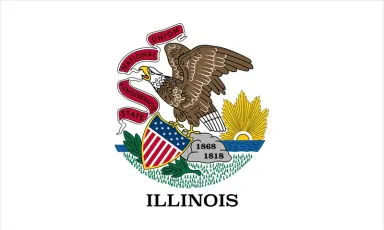How to Pursue Legal Action Against A Trucking Company

If you get into an accident with an 18-wheeler or commercial vehicle, you may have several options to pursue financial compensation for your medical bills, lost wages, property damage, pain and suffering, and other damages. Filing a lawsuit against a trucking company will be subject to the state’s (where the accident occurred) statute of limitations. This means that the person filing must take legal action within a specified period, or the case may be barred from court.
Many may assume that you would need to file a lawsuit against the driver directly, however, there are often other potentially liable parties. This can be the case in truck accident cases where the driver’s employer may also be held responsible (along with the truck driver).
How Long Do I Have to File a Lawsuit Against a Truck Company After an Accident?
Each state has a different statute of limitations when it comes to filing a personal injury lawsuit, so it’s a good idea to research your local laws to figure out how long you have to file. Most states have implemented a two-year statute of limitation from the date of the incident. Some states, such as Florida and Maine, extend the standard two-year timeline.
How to Start an Insurance Claim Against a Trucking Company
Though you may not necessarily "need" legal representation when pursuing an insurance claim against a trucking company, it is strongly advised. Commercial trucking companies have deeper pockets and higher insurance coverage than independent truck drivers.
Bringing a claim against a trucking company in court can be challenging since they often have the funds to heavily litigate a case. You will most likely need an experienced truck accident attorney who can give you the best opportunity to receive full and fair compensation.
1. Report the accident immediately
It is important to report the accident immediately to your insurance company and other necessary parties. The trucking company will assign the claim to a company representative and begin their investigation right away to secure time-sensitive evidence from the scene. Many states also have laws that require a person to submit an accident report to their local DMV, so check with your local regulations to make sure you comply.
2. Document everything
Write down everything you remember about the accident in a central location that’s easy to access, such as the notes app on your phone or a notebook.
Take photos and videos of the scene.
Make a note of anything you noticed about the driver or their behavior, especially if you think the accident was due to negligence.
It is also important to take photographs of all vehicles involved in the accident, including your own and photographs of the other party's insurance information, driver’s license, and registration.
Please be mindful to do all of this only when it is safe to do so, and all vehicles are off the road and there is no immediate danger to you or your vehicle.
3. Talk to Witnesses
Identify potential witnesses and gather their contact information where possible. First responders, police officers, passersby, and anyone hanging around the scene could be interviewed and provide their account of events. Keep a log of who you speak to and their contact information should you or your attorney need to follow up with them in the future.
4. Speak with a Doctor
If you've been injured, go to a doctor as soon as possible. Take photos and notes of continuing medical issues as a result of the accident, like whiplash, which can sometimes appear days or weeks after the accident. It is helpful to keep a log of all medical providers that have treated you for any injuries sustained in the accident.
5. Determine the company’s liability
The last step before starting a lawsuit against a trucking company is to determine if the driver of the other vehicle was an employee of the company when the accident occurred.
A skilled semi-truck accident attorney can find this information quickly and begin processing your claim.
In general, if the truck driver who caused the accident is classified as an “employee” of the trucking company, and was under the course and scope of his employment when the accident occurred, you can bring a claim against the trucking company along with the driver.
If the driver is classified as an independent contractor, the trucking company may not be liable for the accident and the truck driver’s conduct, depending on the employment agreement and details of the accident.
There are specific criteria in each state to be classified as an independent contractor. As a general rule, truck drivers can only be considered independent contractors if their employer does not have significant control regarding how and when they carry out their work duties and activities. Consult with an 18-wheeler accident attorney in your area to help determine what kind of standard insurance the driver carries and your avenues to recovering compensation.
How Long Does a Trucking Company Lawsuit Take?
The short answer is that the duration of a lawsuit can vary widely depending on individual case-by-case factors. Truck accident lawsuits do not settle overnight.
The process for settling a truck accident claim depends on several factors. Some claims can be resolved in a matter of months. However, the case-specific circumstances of truck accidents often have complicated aspects that will likely take longer to parse out in court.
In the case of complex claims where liability is contested or there are potentially multiple parties at fault, cases can take several months or years before they are ultimately resolved. A truck crash attorney can provide a more accurate timeline for compensation but prepare for the long haul.
Will My Claim Against the Trucking Company Go to Court?
Whether or not you have to go to court for your trucking accident claim will depend on many factors. Your case only goes to court when you and the other party (or parties) cannot agree on the amount of compensation. Many trucking companies want to settle out of court to avoid expensive court costs or risk a potential larger settlement in court. This is another reason to have a knowledgeable truck accident lawyer on your side who knows how to negotiate with an insurance provider and maximize the value of your claim.
Resources for Truck Accident Victims
If you retain representation, your truck wreck attorney will be your best available resource. However, there are several additional resources available that you can benefit from.
When it comes to supporting a claim and compiling accident evidence, there are several avenues for reliable information and access to resources that can help you during the legal process.
Request police reports
Depending on what city you reside in, you or your attorney will want to submit a public records request for the police’s accident report. Submitting a request directly to the issuing police department is also an adequate alternative if you know the responding officers’ precinct. Often, police will provide you with the report number and location of the report at the scene of the accident.
Public records requests can be made in person, by mail, or online depending on the jurisdiction. A small fee may be charged for the request and most requests come back within a few days. If time is of the essence, most cities offer an expedited rate, so you can receive that police report as soon as possible.
Be advised that although police officers may detail specifics that they believe contributed to the accident, such as the road/weather conditions or skid marks, these observations are seen as the officer’s opinion and may not be binding in terms of liability.
Research FMCSA regulations
By law, the Federal Motor Carrier Safety Administration is required to provide appropriate copies of the U.S. Code of Federal Regulations (CFR). Volumes can be acquired at many local libraries or viewed online here on their eCFR system. The eCFR system makes it relatively easy to access recent updates to the rules that physical copies may not have. The electronic version provides information about when the change took effect and the impact on current regulations. Additionally, the online system allows you to keyword search for pertinent information, making it much more accessible for a layperson to find the materials they need.
Support claim with statistics
If your accident involves a commercial truck, such as a delivery truck or 18-wheeler, you’ll have to work with your insurance provider. To better prepare your claim, check out the Insurance Information Institute (III), an unaffiliated organization dedicated to informing and empowering consumers. Their site features unbiased information relating to highway safety, managing a large truck claim, and fatality statistics. Under the “large trucks” section, there are safety ratings, regulatory policies, and related safety information that can substantiate your claim and put you in touch with other non-governmental resources.
Expertise.com StaffAuthor
Step into the world of Expertise.com, your go-to hub for credible insights. We don't take accuracy lightly around here. Our squad of expert reviewers, each a maestro in their field, has given the green light to every single article you'll find. From rigorous fact-checking to meticulous evaluations of service providers, we've got it all covered. So feel free to dive in and explore. The information you'll uncover has been stamped with the seal of approval by our top-notch experts.

Jason FloresReviewer
Truck accident attorney Jason Flores is the founder of Jason Flores Law, P.C. and lives in the Orange County, California area. Mr. Flores graduated in the top 10% of his class at Trinity Law School and has worked on hundreds of personal injury cases over his career.




